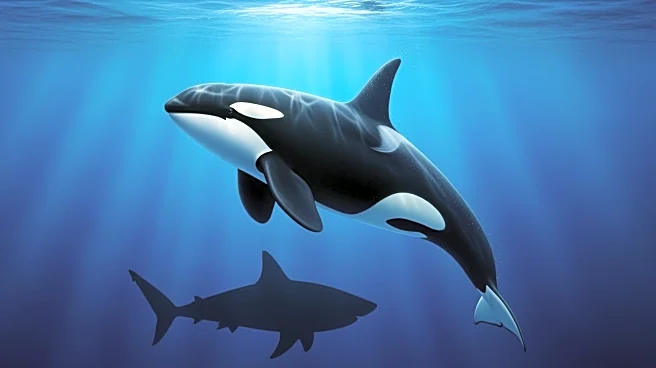What's Happening?
Researchers in Mexico have captured rare footage of orcas hunting great white sharks in the Gulf of California. The videos, filmed in 2020 and 2022, show orcas flipping young sharks to induce tonic immobility
before extracting their livers. This behavior, documented by marine biologist Erick Higuera and his team, is attributed to a specific group of orcas known as the 'Moctezuma pod.' The findings, published in Frontiers in Marine Science, reveal a unique hunting strategy that targets the nutrient-rich livers of sharks.
Why It's Important?
This discovery provides new insights into the predatory behaviors of orcas and their impact on marine ecosystems. The ability of orcas to prey on apex predators like great white sharks challenges existing perceptions of marine food chains. The behavior could have ecological implications, potentially affecting shark populations and the balance of marine life in the region. Understanding these interactions is crucial for marine conservation efforts and could inform strategies to protect vulnerable species.
Beyond the Headlines
The study highlights the adaptability and intelligence of orcas, showcasing their ability to develop specialized hunting techniques. It also raises questions about the potential influence of climate change on marine species interactions, as changes in ocean temperatures may alter the distribution of prey and predators. The research underscores the importance of continued observation and documentation of marine life to uncover hidden ecological dynamics.









